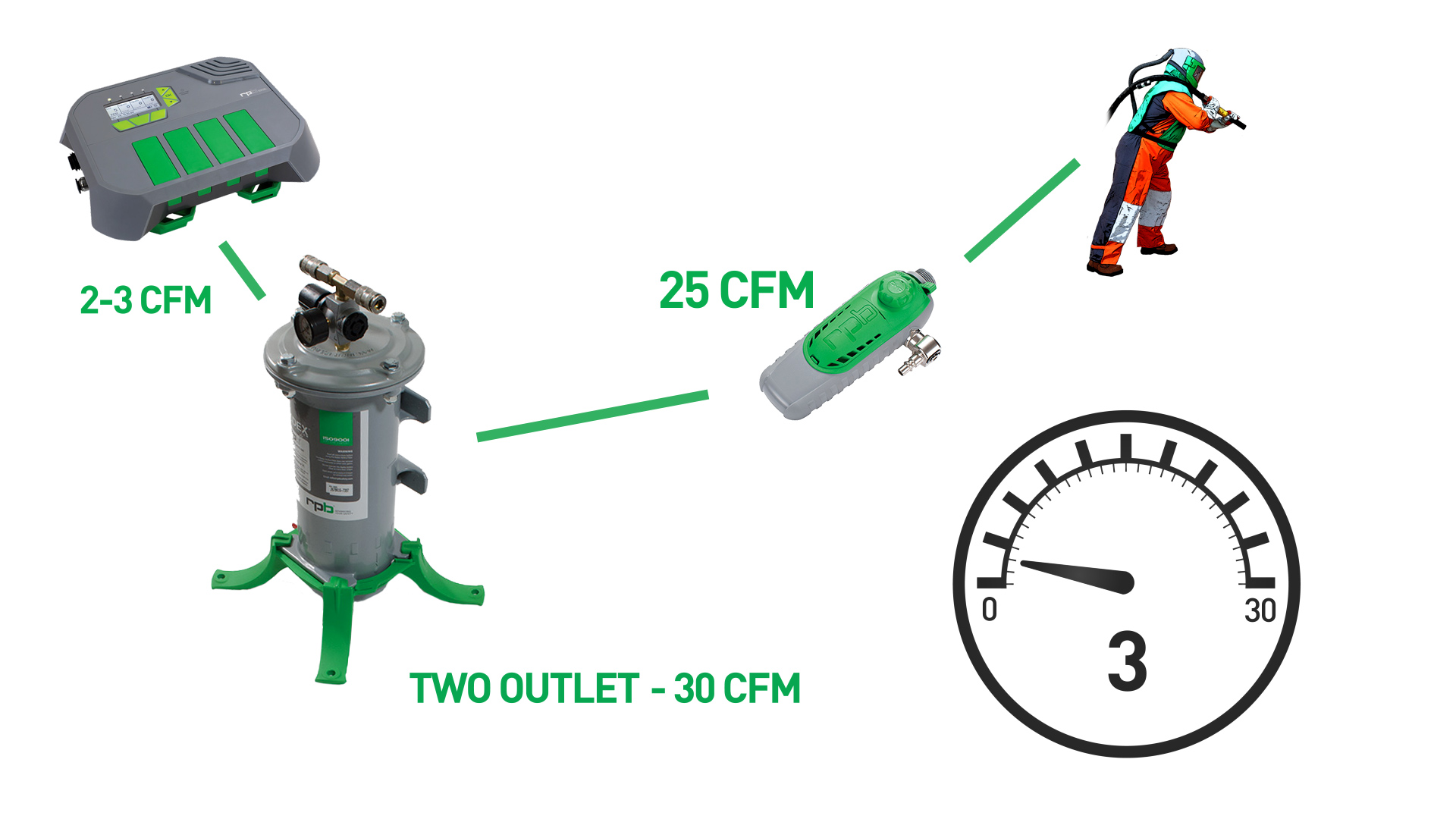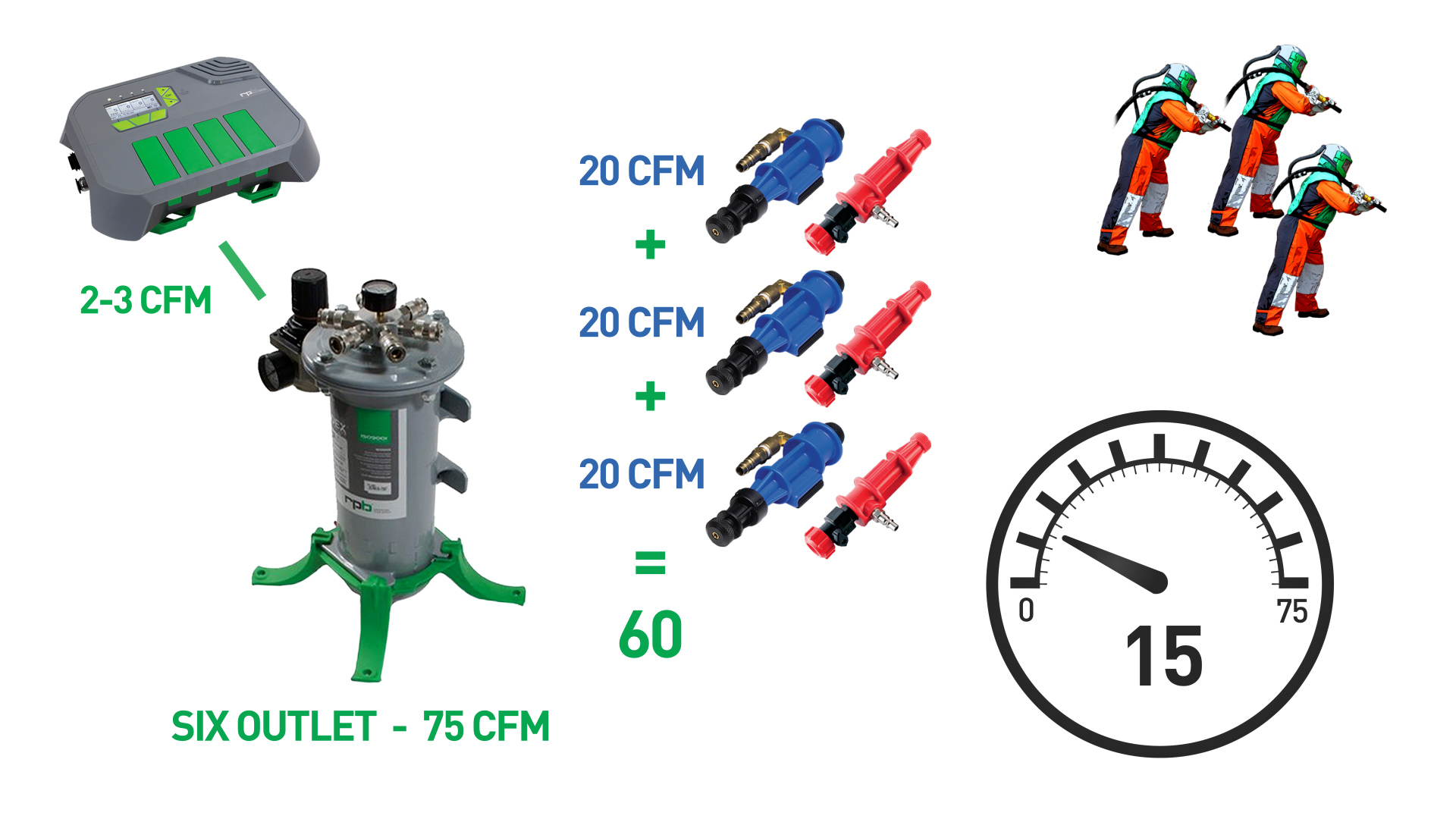It Was Supposed To Cool Better Than The Blue Tube
Recently, an early summer heat wave resulted in a customer calling us to complain that his C40 cooling tube wasn’t as good as his previous blue cool tube. The C40 was supposed to be an upgrade. It was supposed to drop the temperature in his blast helmet more than the blue tube – and yet it made things hotter. He wanted to know what was going on.
So this gives us the perfect opportunity to explain the difference between the three most common air flow devices –to ensure you get the maximum comfort you’re expecting.
Here’s a quick refresher:
- The Constant Flow device provides your respirator helmet with the filtered air from the Radex breathing air filter, but it does not provide any heating or cooling capabilities.
- The blue cool air tube improves upon the constant flow device by cooling the incoming air… up to 33 degrees F/ 18 degrees C.
- And the C40 improves up on the cooling capabilities of the blue tube. It can cool the incoming air up to 52 degrees F / 29 degrees C. It also provides the functionality to heat the air which eliminates the need to change the device to the red heating tube in the winter.
The C40 is definitely the premium option – so in our customer’s case, why was it not cooling as well as the blue tube?
So here’s what causes this issue:
While the C40 does have the highest degree of cooling capacity, it’s conditional upon your blasting setup. Whether you should use the C40 vs. the blue cool air tube comes down to how big your blast crew is and the equipment being used.
Let me explain:
First, let’s talk about the equipment:
- The primary determinant is which Radex breathing air filter is being used.
- The 2-outlet version has a capacity of 30 CFM,
- while the 6 outlet’s capacity is 75 CFM.
- The next factor is how many CFM the respective air flow devices consume.
- The base model Constant Flow tube consumes 12 CFM,
- the blue & red tubes consume about 20,
- and the C40 consumes about 25.
 My Account
My Account






